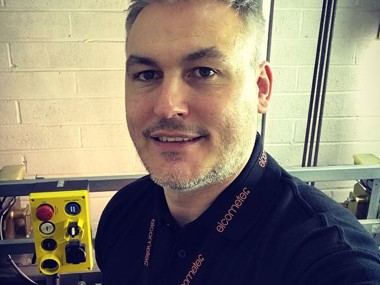
Another year, another resolution. Make it count this year by investing in your career.
If you’re serious about taking your engineering career to new heights this year, Professional Registration is the route to take.
Registered professional engineers are recognised for their competence, ability and integrity. They are committed to keeping their skills and knowledge up to date through continuing professional development (CPD).
According to the Engineering Council (EngC), in the first quarter of 2023 alone,
- 971 people achieved CEng
- 262 people achieved IEng
- 517 people achieved EngTech
At the SOE, in 2023, we saw a 96%, 86% and 71% increase in EngTech, IEng and CEng applications respectively, compared to the previous year.
What is Professional Registration in engineering?
Professional Registration is a voluntary means of demonstrating your professionalism and involves being held to account by your peers for your abilities and adherence to ethical standards. The Engineering Council (EngC) offers three professional titles for engineers involved across the equipment, vehicles, product, plant and process machinery:
- Engineering Technician - EngTech
- Incorporated Engineer (IEng)
- Chartered Engineer (CEng)
Achieving Professional Registration means:
- An external verification of your competence
- Demonstrates your commitment to maintaining and developing your competence through CPD
- Shows your commitment to professional standards and working in a safe, ethical and accountable manner
- Expected by employers, clients and the public
If you’re new to Professional Registration, this comprehensive FAQ will help you navigate the unknowns.
If you'd like to explore more, register your interest here and our team will get back to you. We’ll also be hosting regular workshops throughout the year to help you prepare your application.
Sign up to our Engineering Council Professional Registration webinar on 29 February at 10am
Engineering Technician - EngTech
The Engineering Technician (EngTech) qualification proves your skills in development, production and maintenance of all kinds of equipment, vehicles, product, plant and process machinery.
What is the meaning on EngTech?
EngTech stands for Engineering Technician.
Is EngTech worth it?
Acquiring an EngTech qualification opens up opportunities in supervisory and management roles and contribute to design improvement.
What qualifications do you need for EngTech?
- Qualification equivalent to a NVQ Level 3 in Engineering (or higher)
- A demonstration of the UK-SPEC competencies
- Evidence of CPD – we ask for your previous year’s CPD log
- A sponsor. This is someone who verify that the information you’ve provided is true. This could be your line managers, HR, colleagues or peers.
Who can apply for EngTech?
Apprentices or anyone who has successfully completed work-based learning programmes. This needs to be approved by the professional engineering institution you become members of.
How long does it take to get EngTech?
From 1 month upwards
Can I go from technician to engineer?
Yes, either through further education or via an individual route. But you must meet the competences/commitments set out in the UK-SPEC you are applying for.
What is the EngTech application process like?
- As a pre-requisite to Professional Registration, register as a member of a Professional Engineering Institution like the SOE
- Have an approved level 3 qualification in engineering
- Provide evidence of initial professional development (IPD) through structured training and workplace experience
- This is then submitted for a committee review
- Once the committee is satisfied that you’ve met the criteria, you’re then registered with the Engineering Council, thus gaining your qualification
Can I upgrade from EngTech to CEng with an engineering degree and a manager role?
Yes, as long as you have the right qualifications. It’s not a ladder and you don’t have to progress systematically. You apply for the appropriate level in line with your academics.
Enquire about EngTech qualification
Incorporated Engineer – IEng
Incorporated Engineers (IEng) manage and maintain applications of current and developing technology, and are involved with design, development, manufacture, construction and inspection. Those with IEng perform vital roles and have influence within the industry.
What does IEng mean?
IEng stands for Incorporated Engineer.
Is an IEng a good qualification and worth having?
IEng is equivalent to a degree, is much cost effective than a degree, and is certainly worth investing in.
How long does it take to become an IEng?
This varies depending on work commitments but can take as little as three months,
What is IEng equivalent to?
Degree (BEng, BSc degree or an old academic HNC/D pre-1999 (grandfather rights)
How do you qualify for IEng?
To apply for your Incorporated Engineer (IEng) qualification, you need:
- An accredited Bachelors or honours degree in engineering or technology (level 6),
- Or a demonstration of an equivalent depth of knowledge through a technical report.
- In addition, you also need to provide examples of how you’ve met the IEng competencies.
What is the IEng application process like?
- As a pre-requisite to Professional Registration, register as a member of a Professional Engineering Institution like the SOE
- An accredited Bachelors or honours degree in engineering or technology (level 6), or a demonstration of an equivalent depth of knowledge through a technical report
- Provide evidence that you’ve met IEng competencies against UK – SPEC
- During the Professional Review of competence and commitment, you are assessed against the UK-SPEC
- This is then followed by a Professional Review Interview (PRI) (plus technical report interview if required)
- This is then submitted for a committee review
- Once the committee is satisfied that you’ve met the criteria, you’re then registered with the Engineering Council, thus gaining your qualification.
Is IEng internationally recognised?
All levels of Professional Registration by the Engineering Council are internationally recognised.
What's the difference between IEng and CEng?
While the registration process for both is identical, the qualifications carry different weight in terms of its value. While an Incorporated Engineer (IEng) is responsible for maintaining and managing applications of existing or emerging technologies, Chartered Engineers (CEng) are involved in the development of solutions to engineering problems, with technical accountability for systems carrying high levels of risk.
Can I upgrade from IEng to CEng?
Yes, if you meet the CEng competences/commitments set out by the UK-SPEC.
Enquire about IEng qualification
Chartered Engineer – CEng
Chartered Engineer (CEng) marks you as an individual who works to develop solutions to complex engineering problems using new or existing technologies, through innovation, creativity and embracing new ideas.
How long does it take to become a Chartered Engineer?
This varies depending on work commitments but can take as little as three months,
What is the difference between BEng and CEng?
The difference is the registrants has demonstrated that they have the knowledge and have met the UK-SPEC competences and commitments written by the EngC.
Is Chartered Engineer worth it?
According to the Engineering Council’s 2022 annual report, there are over 175,000 Chartered Engineers in their register. CEng is the highest engineering qualification you can get and achieving a Chartered status elevates your career, opening doors to new opportunities as you work your way up the career ladder.
How do you check if someone is a Chartered Engineer?
Engineering Council offers the RegCheck service where your employers or potential clients can check or verify your status.
How to become a Chartered Engineer?
To apply for a Chartered Engineer (CEng) qualification, you need the following:
- An accredited Bachelors or honors degree in engineering or technology (level 6) plus further learning (usually a masters)
- Or an accredited MEng degree
- Or a demonstration of an equivalent depth of knowledge through a technical report
- In addition, you also need to provide examples of how you’ve met the CEng competencies.
Enquire about CEng qualification
Meet our members who've achieved their Professional Registration through SOE.




